





Your professional development is not just about building skills but about building a network and relationships.
Social capital – the value of your network – should be a highly treasured asset, says Professor Dame Heather McGregor, the Provost & Vice Principal of Heriot-Watt University Dubai.
Dame Heather estimates that social capital will contribute at least half of the success of your career.
And she should know what she is talking about. Dame Heather is a non-executive director of two public companies in the US and UK, a founding member of the 30% Club for women on boards in the UK (and a speaker for Aurora50’s NOORA network) – and her own PhD thesis focused on the importance of connections.
A 2020 LinkedIn survey found that three-quarters of respondents had been hired as a result of an introduction or connection made by someone they knew.
When you remember that as many as two-thirds of jobs are never posted – and instead hired from within or on referral – that makes your network vital to your career.
All those connections you make are just as valuable to your employers as your qualifications, education and experience.
Your business networking and networking events is worth the investment.
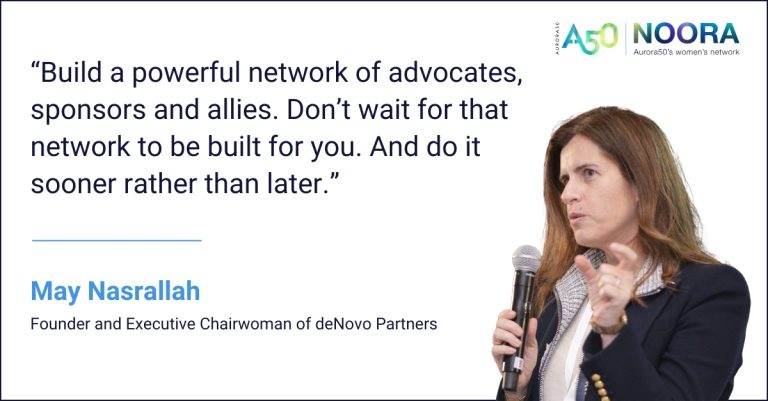
By the time women reach management, they’ve often missed out on building social capital with female peers.
Women need to build their social capital early on (and then keep on building it and maintaining it) so they can rise together – and connected.
Later in their career is the time that women most need their network… but with a busy, executive day job and often a family by now, this is also when they have the least time to work on it.
“Build a powerful network of advocates, sponsors and allies,” says May Nasrallah, Founder and Executive Chairwoman of Dubai-based boutique corporate finance advisory firm deNovo Partners.
“Don’t wait for that network to be built for you – and do it sooner rather than later,” she adds.
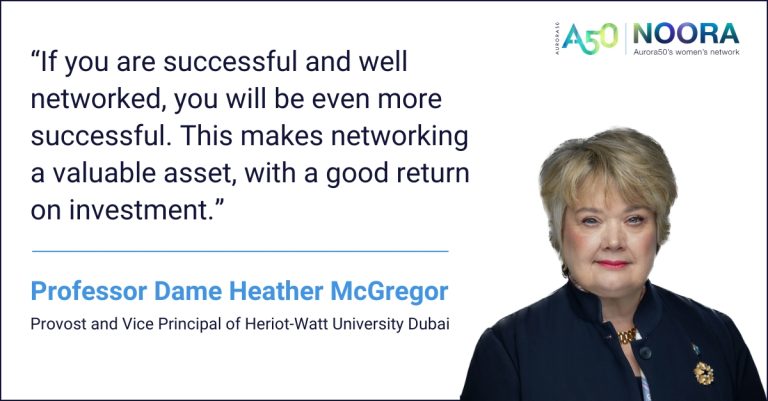
Women network differently to men:
Your network should be made up of lots of ‘weak ties’: these are people you don’t necessarily know too well but who would return your phone call or email.
Measure your network to assess that you have enough ‘weak ties’: if not, your social capital is not strong enough.
If everybody you know knows each other, then you have a very closed network and you should invest in getting to know more people who you are not familiar with, to expand your social capital.
Social capital exerts a ‘multiplier’ effect,” says Dame Heather McGregor. “If you are successful and well networked, you will be even more successful.
“This makes networking a valuable asset, with a good return on investment.”
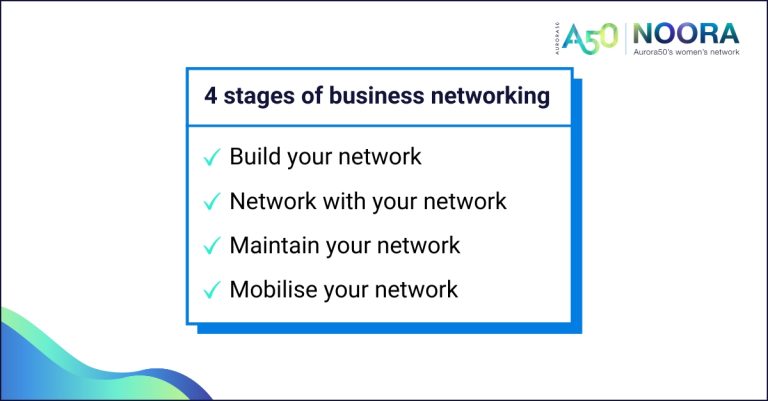
When you meet people, take notes. Build a database of some sort – your own CRM (customer relationship management) system, with very accurate records. You could use Notes, Outlook, an Excel spreadsheet. But try not to rely on social media network tools as your network source – they can change quickly and you could lose your contacts.
People do not passively benefit from networks. To obtain the benefits of your circle, you have to keep networking with the people you know from university and in different jobs.
Networks need investment and time. Don’t wait until you need something to reach out. Festivals and holidays are a good time to stay in touch. So is if you change jobs or get a promotion. LinkedIn is a great help in maintaining your relationships.
Ask for help and don’t be shy. If you are reaching out to people with a proactive intention, make it very, very easy for them. Be specific in what you ask. Or meet for a coffee then ask for contacts or to be introduced to someone you know they know.
NOORA is Aurora50’s real-world community for talented and ambitious corporate GCC women who lead with impact. Members cross industries and range from first-time managers to seasoned leaders, supporting each other’s growth and professional success. Corporations nominate and sponsor talented women employees; corporate women self-finance and join independently.
Image by Mohamed Hassan from Pixabay

Tackling bias about age, gender and even beauty or height is not a one-time fix, but will help create an inclusive workplace.
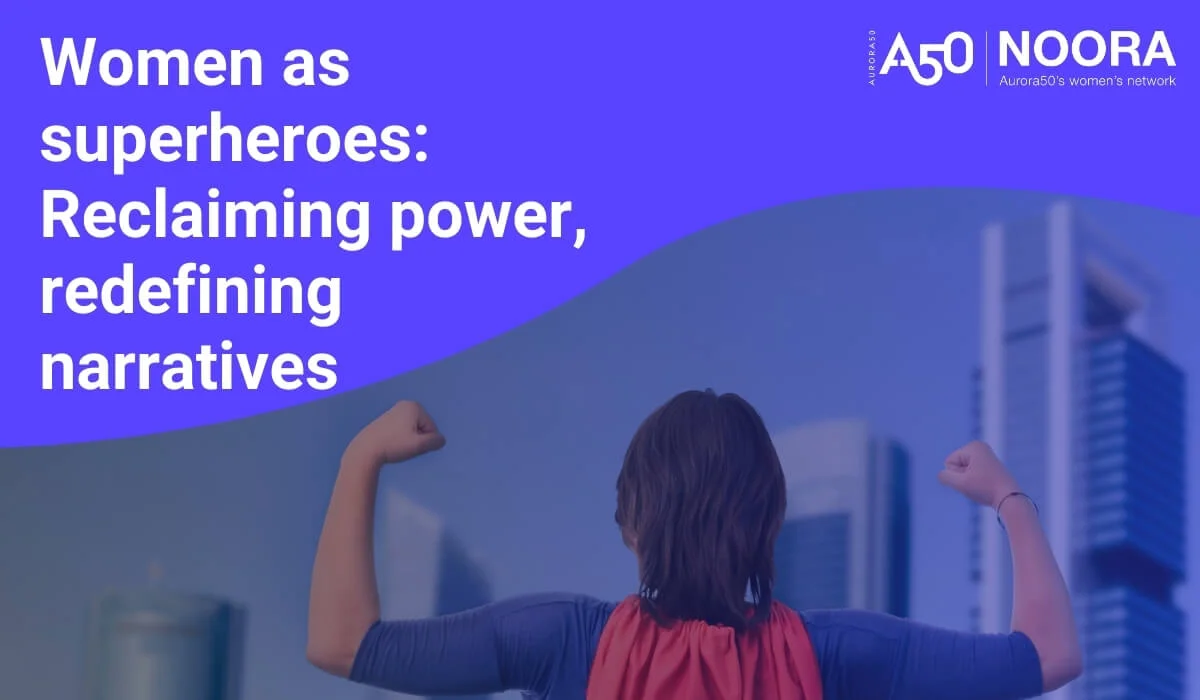
You don’t need a cape to be a female superhero in disguise, says NOORA speaker Bron Williams, in a talk one NOORA member called “one of the most authentic presentations I have ever attended”.
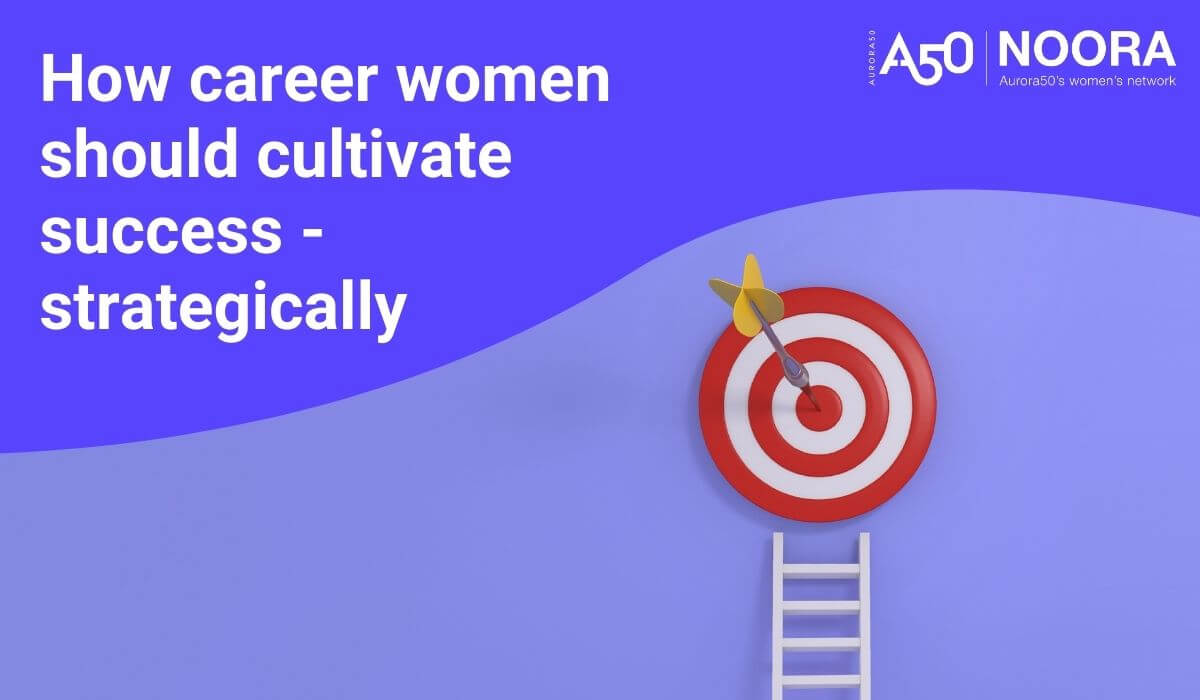
Build a ‘confidence community’ and become the author of your career journey, advises career transition coach Sherma Johnson-Gray, speaking to Aurora50’s NOORA network.

